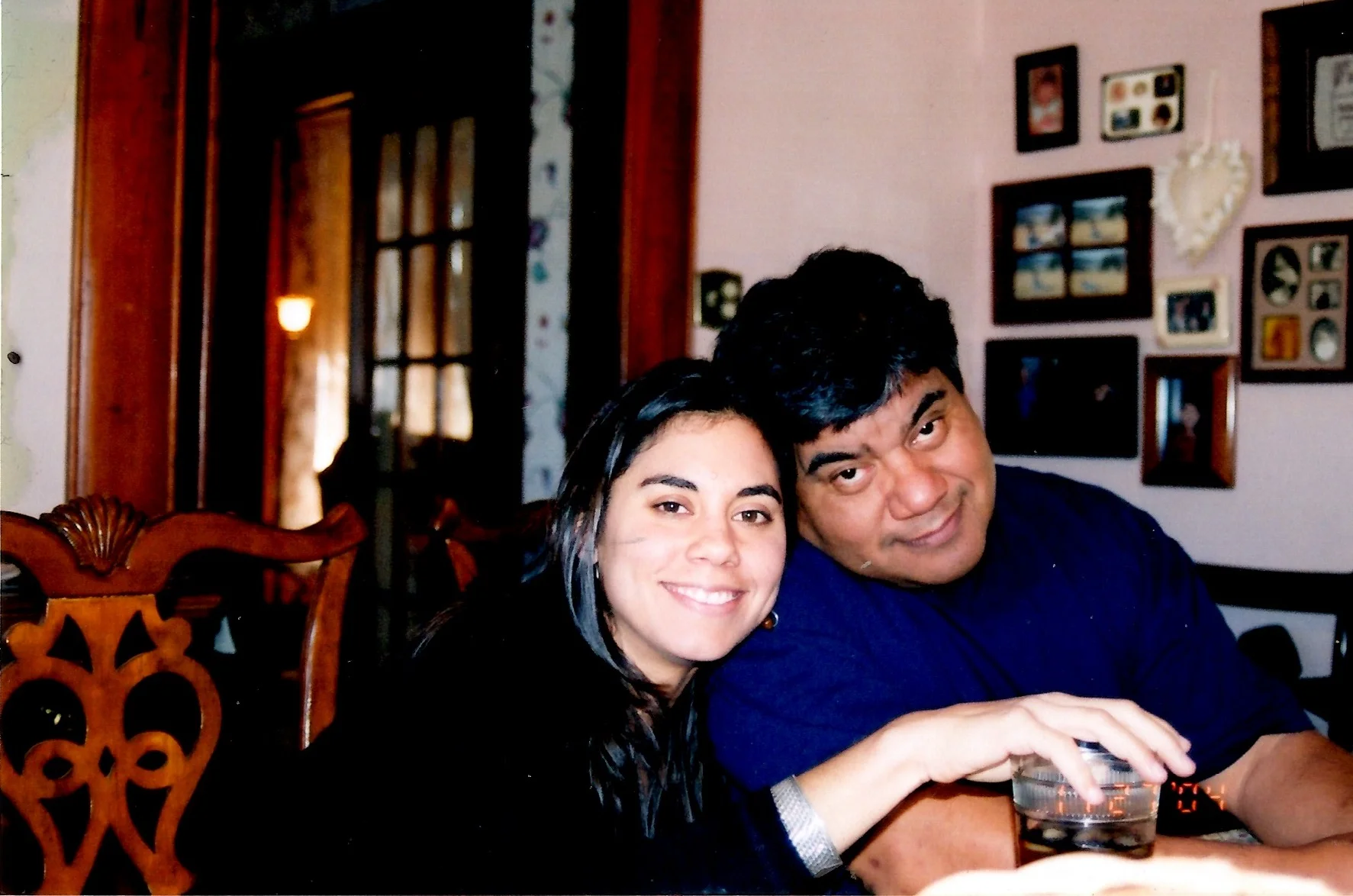My dad and I, 2004
Swimming in the blissful good fortune of someone who reached her forties without losing a close loved one, I was horrible when it came to helping others who were dealing with death. I once didn’t contact a good friend for months after her mom died. On the day a neighbor had to euthanize his dog who had been his main companion for 20 years, I asked, “Are you going to get another dog?” He looked at me like I’d slapped him.
But then I joined the club. My dad was killed in August of 2015. He was on his motorcycle and was hit by a semi-truck that crossed into his lane. My dad was 62 years old, and his death was – is still – a gut-punching shock.
My dad lived in a small town, surrounded by our large family, and was active in his church and community. The initial days of our mourning were very public -- people dropped by with food and toilet paper, strangers gave their condolences at the visitation, friends he hadn't seen since high school attended the funeral. I would have assumed that I would hate feeling exposed to so many. But in reality, each word and hug and offer of support helped. Each human contact meant something to me, gave me an opportunity to cry, and made me feel not so afraid and alone.
I want to remember that. In honor of all those people who spoke and hugged and emailed, I want to remember how I would like to behave the next time someone I know is grieving the death of a loved one.
1. I will reach out anyway I can.
I was amazed how helpful each text, Facebook post, email, phone call, card or drop-by was. Death is terrifying and being shown that I had this ever-growing wall of support and love to lean on comforted me and made me feel less alone. I didn’t care about the substance of the message; all I cared about was the karmic hug offered by each person.
2. I won’t worry about what to say.
So often, I didn't reach out to someone who was grieving because I worried about what to say. But when I was in grief, I really didn’t care what was said. I just needed the support, the affirmation of being loved, the comfort of a hello. Just be there. The words will come.
3. I will remember that saying, “I’m sorry for your loss,” is fine.
This is a great, simple phrase, easy to say and easy to mean. Said to me over and over again in the reception line after my dad’s funeral, it was still meaningful. If the grievers have more to say, they will. But it’s okay to just be there in silence and support.
4. I will bring food.
People in mourning forget to eat. And then they eat a ton. And then they have to get back to real life and start planning meals. It was the very last thing in the world I wanted to do. Bring food without asking. Bring fresh food and freezable food. Bring baked goods and a salad. Bring food two weeks after the funeral. But most importantly, DON’T ASK if the person needs food. Trust me. They do.
5. I won’t talk about the bright side.
Focusing on the positive – “At least they got to see the Grand Canyon first,” – can make this incredibly difficult conversation more comfortable for the person feeling awkward. For the person who will never see their loved one again, there is no bright side. If the mourner wants to say it, that’s fine. But don’t bring it up as the comforter. In the beginning stages of grief, it is not a comfort.
6. I won’t ask if the mourner needs anything. I will just do.
I will bring food. I will walk their dog. I will run a load of laundry. I will deliver groceries. I will whisk their kids off for a day. “Don’t hesitate to ask if you need anything,” is a well-intentioned sentiment, but a person in mourning can barely pick out what to wear, much less figure out where they need help. Just jump in and help. Oh yeah, and bring food.
7. I will make plans and dates with the griever.
When I got back home after the funeral, several beloved girlfriends contacted me with dates for cocktails, coffees and my birthday lunch. I could choose which dates worked best, but they did not give me an option to bow out. Without these lovely women, I would have spent a lot of unhealthy time on the couch watching Bones re-runs. I will remember the value of a loving arm twist.
8. I WON’T TRY TO CHANGE THE SUBJECT.
I remember thinking in the past, “They’re probably tired of talking about death. I’ll bring up something else,” then trying to forge ahead with a new conversation. I was so wrong. Let the person talk about grieving as much and as long as he wants. When he's ready to talk about something else, he will. But let him lead the conversation.
9. I will encourage them to grieve.
One of the blessings I only fully realized after the initial fog of grieving lifted was that everyone in my life -- friends, family, husband, kids -- gave me room to grieve. No one expected me to move this thing along. I could talk and cry and stay in my sweats as long as I wanted. Encourage the griever to lean into whatever emotion he or she is feeling. Resisting grief, or ignoring it, only makes a person feel worse.
10. I will show up two weeks and a month and two months later.
The real blow of loss doesn't come until all the initial hubbub dies down. Two weeks, a month, two months later is when a mourner can really use a frozen casserole and a coffee date. I will remember to reach out and reassure the griever -- like so many wonderful people have reached out to reassure me -- that she is supported and loved.
I'd love to hear any advice you have for helping people get through grief. Please share in the comments below.

